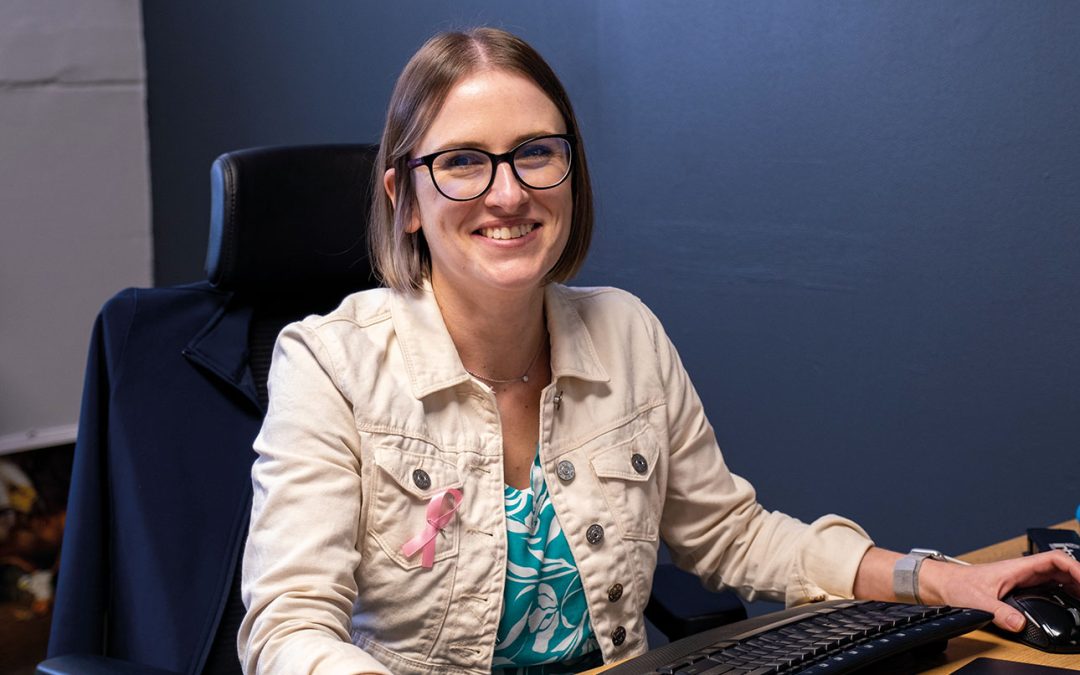Jendamark Automation’s head of finance, Jacqui Nagle, is used to crunching big numbers and making tough business decisions. We asked her for an honest account of what it’s like to be a woman in the hot seat.
“I started at Jendamark on secondment in my final year of articles, and never looked back. The passion that runs through the veins of this company is what drew me to it and keeps challenging me every day.
In my experience, talking about women in the workplace can be a very taboo subject. We are in that awkward friend zone, where we are making progress, but not quite there yet globally.
I can honestly say that being a woman at Jendamark has never been particularly challenging for me. Yes, there have been the odd nuances and usual stereotypes from colleagues or service providers, but never have I felt the need to prove myself because of my gender. This has a lot to do with the directors and the culture they have created.
Don’t get me wrong; there are challenges. As I write this, while rocking my daughter to sleep after a long day*, I know that a lot of it has to do with previous generations not changing quickly enough and the knock-on effect this has had on the generation of women currently in leadership positions.
Women are often still expected to be the default parent and homemaker, and many companies are not in tune with a woman’s needs. A big fear among women is how we become mothers without compromising our careers.
I had an older man ask if I had been bothered by work during my maternity leave. When I said ‘No, not at all!’, he was surprised and exclaimed how lucky I was. This should not be considered luck. This is how it should be in every company in every country globally. Burnout is a serious risk among this generation of career-oriented women who are also becoming moms.
However, the new generation emerging from university is putting its collective foot down when it comes to gender roles. Seeing this, I know that in the near future the discussion around women in the workplace will no longer be necessary because it will no longer be of any relevance.
One of our management team’s directives for 2022 was to hire more women. This is not because we feel women need an advantage but rather because of the value we add, which is becoming increasingly clear globally.
Women are key role players when it comes to facilitating engagement, passion and empathy within the organisation and among colleagues. Nowadays, people want more out of their jobs. It’s not just about money or status but about the intrinsic value it adds to a person’s life.
Within Jendamark, our wellness days, talent pools and employee engagement initiatives are driven largely by our female colleagues. This is testament to our passion for the well-being of all people in the workplace.
It used to frustrate me that women were stereotyped as the more emotional sex, which translates to us often being labelled aggressive instead of assertive, or argumentative instead of honest. I’ve come to realise that it simply means our passion shines through, and for that we should be proud.
I often see social media posts by women saying, ‘Let’s be more like our male colleagues – don’t apologise when you’re late, no need to say thank you…’ But this, I believe, is more reflective of historical egos than gender.
I don’t agree with changing ourselves, as men or as women, for fear of judgement. Be professional, absolutely, but let us never lose our passion or enthusiasm for what we do!”
*Disclaimer: My husband is in the next room putting my son to bed, and he cooked supper, so I’m not that hard done by!
